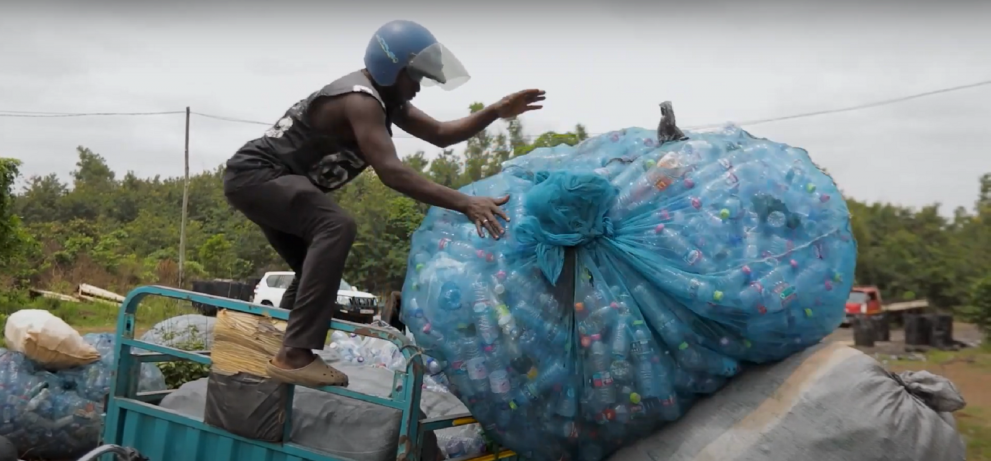
The Boosting Green Employment and Enterprise Opportunities in Ghana (GrEEn) project is a four-year joint action by the European Union, the Embassy of the Kingdom of the Netherlands in Ghana, SNV Netherlands Development Organisation and the United Nations Capital Development Fund (UNCDF). The project aims to create greater economic and employment opportunities for youth, women and returning migrants by promoting and supporting sustainable, green businesses in two selected regions in Ghana: the Ashanti and Western regions.
GrEEn is funded by the European Union Emergency Trust Fund (EUTF) for Africa with an amount of EUR 20,000,000 from the EU and co-funding from SNV and UNCDF.
GrEEn Acceleration Programme and Premier Waste Services
As part of the GrEEn Project, SNV works to support and speed the growth of Small and Medium-size Enterprises (SMEs) in the green and circular economy sectors, so they can offer decent, fair and sustainable jobs to youth, women and returning migrants.
In 2021, SNV rolled out the GrEEn Incubation and Acceleration programmes. These two programme are an intensive 6-month business advisory and support training aimed at helping green start-ups to grow (incubation) or supporting mature businesses to expand their operations and be investment ready (acceleration).
Under the GrEEn Acceleration Programme, Edmund Arthur, CEO of Premier Waste Services, received business advisory support facilitated by SNV’s business hub partner, Innohub Ltd, in the Greater Accra region. Premier Waste Services is a green business in the Water, Sanitation and Hygiene (WASH) sector.
Waste Management in Ghana
Waste disposal is a huge problem in developing countries like Ghana, with governments experiencing numerous hurdles in managing waste generated in their cities and communities.
Problem
According to the United Nations Environment Programme (UNEP), at the current pace, plastic pollution, which is already around 400 million tonnes per year (of which only 10% is being recycled and 14% incinerated), could double by 2040. The Global Plastic Action estimates that Ghana generates about 0.84 million tonnes of plastic waste per year (of which only 5% is collected for recycling). This figure grows at an annual rate of 5.4% - meaning that by 2040, plastic waste could reach 2.3 million tonnes per year.
Solution
If reducing the production of plastic (at least its growth) is the main priority, safe waste storage (knowing that about 80% of plastic waste ends up in nature) and recycling are important too. Research conducted by the Ghana Climate Innovation Centre (GCIC) states that Ghana could generate more than GHC 88 million annually by recycling plastic waste.
To solve the issue of waste management in the Ashanti Region, Premier Waste Services produces low cost, affordable and quality flakes from plastic waste by:
- Recycling plastic waste and PET bottles into re-useable materials;
- Facilitating a cleaner environment by re-using discarded plastic materials;
- Reducing the use of landfill sites by recycling plastic waste.
The flakes are sold to plastic manufacturing companies and waste management companies in and outside of Ghana. Premier Waste’s partners are waste management companies, waste pickers, and Ghana’s Environmental Protection Agency.
Challenges
- Manual removal of plastic labels;
- Lack of equipment.
Please find here a video telling the story of Edmund Arthur and Premier Waste Services.
Details
- Publication date
- 30 May 2022
- Region and Country
- Ghana
- Thematic
- Greater economic and employment opportunities
- Partner
- United Nations Capital Development Fund
- SNV Netherlands Development Organisation, Ghana
